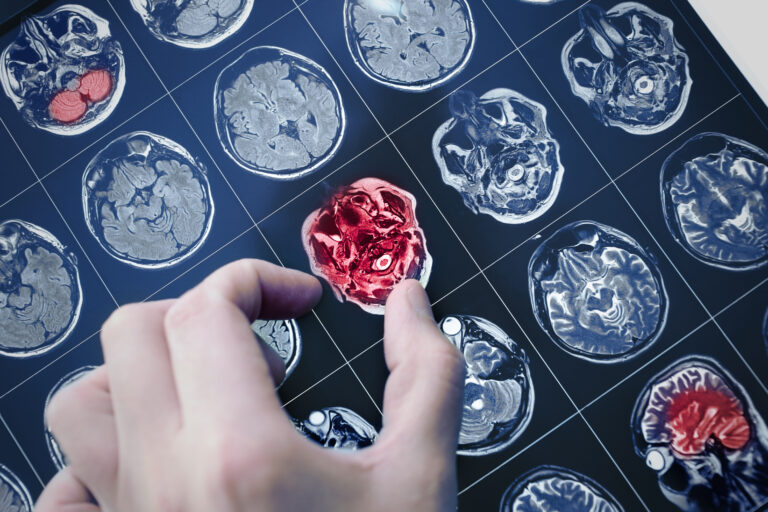Psilocybin therapy is a new and exciting area of research in mental health, but when it comes to Alzheimer’s disease, the picture is much less clear. There is a lot of interest in whether psychedelics like psilocybin—the active compound in “magic mushrooms”—could help people with Alzheimer’s, but right now, there is almost no direct research on this specific question. Most of what we know comes from studies on depression, anxiety, and other conditions, not Alzheimer’s itself. This article will walk through what psilocybin therapy is, what we know about its safety, how it might theoretically help in Alzheimer’s, and what the big unknowns and risks are.
## What Is Psilocybin Therapy?
Psilocybin therapy involves giving a person a controlled dose of psilocybin, usually in a capsule, in a safe, supervised setting with trained professionals. The person typically spends several hours experiencing the effects of the drug, which can include changes in perception, mood, and thought patterns. This is often followed by “integration” sessions, where the person talks about their experience with a therapist to help make sense of it and apply any insights to their daily life[2]. The goal is not just to have a psychedelic experience, but to use that experience as part of a broader therapeutic process.
## Is Psilocybin Therapy Safe?
In general, psilocybin has been found to be relatively safe when given in controlled clinical settings to carefully screened adults. The most common side effects are things like visual hallucinations, sensory illusions, and headaches, but serious side effects are rare[1]. Large clinical trials, such as those using a 25 mg dose of synthetic psilocybin (COMP360) for treatment-resistant depression, have not found evidence of increased suicidality or other major safety concerns[2]. However, these studies have mostly involved people without major neurological diseases like Alzheimer’s.
It’s important to note that these trials usually exclude people with serious medical or neurological conditions, so we don’t really know how safe psilocybin is for someone with Alzheimer’s disease. Alzheimer’s affects the brain in complex ways, and adding a powerful psychedelic drug could have unpredictable effects. There is also the risk of confusion, agitation, or even psychosis, which are already common symptoms in Alzheimer’s[5]. Without specific studies in this population, it’s impossible to say for sure that psilocybin therapy is safe for people with Alzheimer’s.
## Could Psilocybin Help with Alzheimer’s Symptoms?
Alzheimer’s disease is much more than just memory loss. Over 90% of people with Alzheimer’s experience behavioral and psychological symptoms like depression, anxiety, agitation, and even psychosis[5]. These symptoms can be very distressing for both the person with Alzheimer’s and their caregivers. Current treatments often rely on medications that have limited effectiveness and can cause significant side effects[5].
Some researchers think that psilocybin might help with these symptoms by “resetting” brain networks and increasing neuroplasticity—the brain’s ability to adapt and change[2]. In depression, psilocybin has shown promise in improving mood, attention, and even some aspects of thinking[1]. If these benefits could be extended to people with Alzheimer’s, it might help with depression, anxiety, and possibly even some of the agitation that is so hard to treat.
However, this is all theoretical. There are no published clinical trials testing psilocybin in people with Alzheimer’s disease. A few research centers are studying psilocybin for depression in Parkinson’s disease and for chronic pain, but not yet for Alzheimer’s[3]. Until such studies are done, we simply don’t know if psilocybin has any real benefit for Alzheimer’s symptoms.
## What Are the Risks and Unknowns?
The biggest risk is that we don’t know how psilocybin affects the Alzheimer’s brain. Alzheimer’s causes widespread damage to brain cells and changes in brain chemistry. Adding a drug that profoundly alters perception and thought could make confusion or agitation worse, or even trigger psychotic symptoms. People with Alzheimer’s are also often older and may have other medical conditions or take multiple medications, which could increase the risk of bad reactions.
Another concern is the setting. Psilocybin therapy works best in a calm, supportive environment with trained staff. People with advanced Alzheimer’s may not be able to understand or cooperate with the process, which could make the experience frightening or disorienting. There is also the question of consent—can someone with cognitive impairment truly give informed consent to such a treatment?
Finally, there is the issue of integration. The benefits of psilocybin therapy seem to depend on the person being able to reflect on and make sense of their experience afterward[2]. This might be very difficult for someone with significant memory or thinking problems.
## What Do Experts Say?
Most experts agree that more research is needed before psilocybin therapy can be considered for Alzheimer’s disease. The current evidence for safety and benefit comes from studies in other conditions, not Alzheimer’s itself[1][2]. Leading guidelines for Alzheimer’s care emphasize the importance of non-drug approaches, like personalized activities and caregiver support, and caution against using powerful psychotropic drugs unless absolutely necessary[5].
There is also a growing recognition that new treatments for Alzheimer’s—like anti-amyloid drugs—need to be carefully studied for safety and effectiveness in real-world settings[5]. The same should be true for any experimental therapy, including psilocybin.
## The Bottom Line
Psilocybin therapy is a promising new approach for some mental health conditions, but there is no evidence yet that it is safe or effective for Alzheimer’s disease. The risks could be higher in this population, and the potential benefits are still theoretical. Until rigorous clinical trials are conducted specifically in people with Alzheimer’s, psilocybin therapy should not be considered a treatment option for this condition. Anyone considering experimental treatments should talk to their doctor and look for opportunities to participate in well-designed clinical trials[3].
If you or a loved one has Alzheimer’s, the best approach right now is to focus on proven strategies: staying physically and socially active, managing other health conditions, and working with healthcare providers to address symptoms in the safest way possible[5]. As research on psilocybin and other new therapies continues, we may learn more about whether these approaches could one day play a role in Alzheimer’s care—but for now, caution and patience are essential.
[1] Technology Networks, 2025
[2] GlobalRPh, 2025
[3] UCSF Clinical Trials, 2025
[5] The Lancet, 2025





